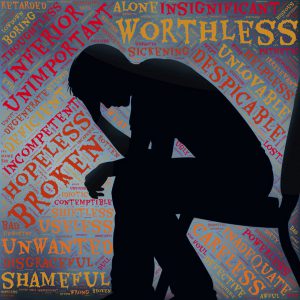Suicide has been a hot topic due to the continual rise every year. The suicide rate rose in all the states between 1999 and 2016, except for Nevada, and continues to climb every year since. Suicide has no boundaries, showing an increase in all demographicsbut the sharpest rise is among teenage boys. The grim reality is that for people between

the ages of 10-34, suicide is the second-leading cause of death.
A large percentage of people, especially teens who are dealing with a range of emotions, including depression and
stress, are just not getting the help that they need. In order to help people who are dealing with issues, it is important that we listen, and help teach people, especially young adults, with how to manage stress and stressors.
What To Look For
Statistics show the number of teens experiencing depression has climbed by over 40% over the past couple of years. Of those numbers, nearly half of them were in the hospital for suicide attempts or thoughts. It is important for parents to identify if their kid is experiencing depression because if it is left unnoticed, it can be harmful, and even deadly. Recognizing irregular behavior, or something “not right” with a person can play a major role in getting them help before it ends fatally. Symptoms can include:
- Irritability
- Social withdrawal
- Anger or agitation
- Changes in appetite
- Changes in sleep patterns
- Difficulty concentrating
- No motivation
- Guilt or worthlessness
- Poor school performance
- Thoughts of death or suicide
- Poems or writing about suicide
What You Can Do

If your kids are acting differently, take the time to talk to them and find out what is bothering them. There are different approaches to take to provide support and help.
- Pay attention- Ask questions and notice the signs of depression.
- Listen- Take the time to listen to the teen’s problems, talking about their feelings. Do not lecture them, just listen, and offer help.
- Exercise- Exercising promotes mental health. It releases hormones that make you feel good. Suggest going out together and get active.
- One on One Time- Talking with your child helps to reconnect with them. Make them a priority.
In order to avoid feelings of depression, a lot of teens may experiment with drugs or alcohol, which can further aggravate the problem. Ask your kids how they are feeling, if those feelings are negative, or suicidal. The number of suicides in the U.S. is at a steady climb. As mentioned before, because it needs to be reiterated again, suicide is the SECOND leading cause of death in people aged 10-34. Listen to your kids, friends, and family. Pay attention, teach them ways to properly cope with what is going on in their lives, and help get the proper treatment before it is too late.
Seek help by contacting the National Suicide Prevention Lifeline at (800) 273-8255, or to use the Crisis Text Line by texting “Home” to 741741 for immediate assistance.


